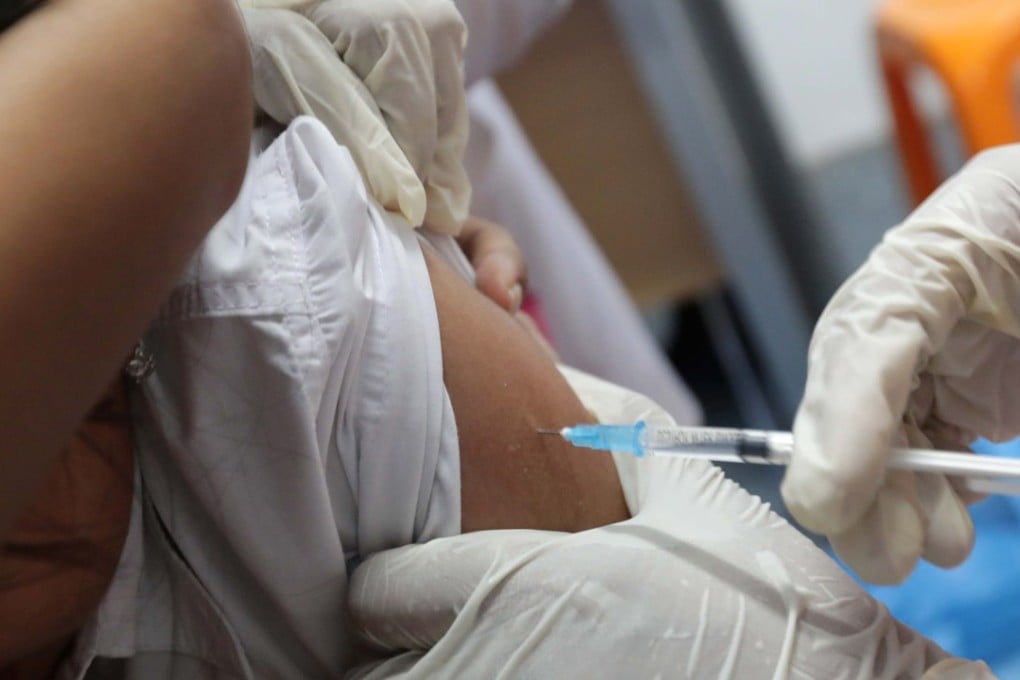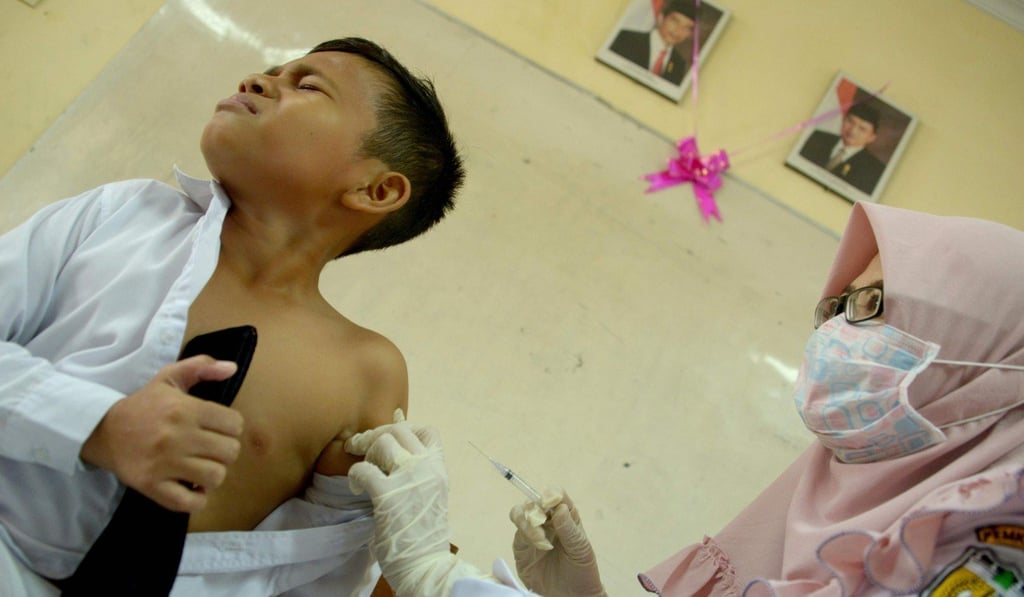‘Non-halal’ measles-rubella vaccine hits resistance in Muslim Indonesia
The country is running out of time to achieve its goal of inoculating 32 million infants and children by the end of September

Cough, runny nose, fever and a spreading, blotchy rash: the symptoms of measles are all too familiar, even though the illness should have been consigned to history by now.
A vaccine to inoculate children against this nasty disease has been available for more than 50 years, yet immunisation rates have remained stubbornly inconsistent and outbreaks, serious illnesses and deaths continue to occur around the world.
Indonesia, which had the third highest number of measles cases in the world last year, is the latest Asian country to undertake a comprehensive campaign to protect children against the infection. By the end of September, health workers hope to have treated a total of 32 million infants and children with the measles-rubella (MR) vaccine, which prevents the two diseases.
But religious objections, superstition and mistrust are threatening to neutralise this ambitious project before it is even completed. With one month to go, only 30 per cent of eligible children, aged 9 months to 14 years, have been given the free vaccine according to the Indonesian Ministry of Health – against an official target of 95 per cent.

Dr Aman Pulangan, president of the Indonesian Paediatric Society which is backing the 881 billion rupiah (US$60 million) campaign, described it as an “emergency situation”.